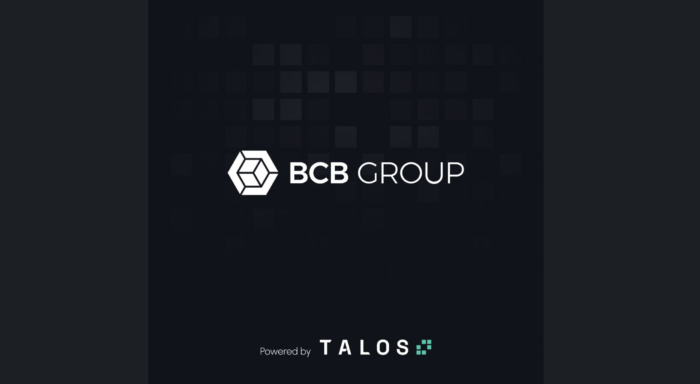BCB Group - Cryptocurrency - compliance/aml news roundup – Singapore Grants First Regulatory In-Principle Approval to Crypto Exchange
compliance/aml news roundup – Singapore Grants First Regulatory In-Principle Approval to Crypto Exchange
The Compliance and Legal Teams here at BCB Group provide insights into the recent news highlights in the compliance and AML world, crypto-focused and beyond. If you’d like to get in touch with us about any of our products or services, just send us a note, we look forward to hearing from you. 
SINGAPORE GRANTS FIRST REGULATORY IN-PRINCIPLE APPROVAL TO CRYPTO EXCHANGE
The Monetary Authority of Singapore (MAS) has approved the first cryptoasset exchange (Independent Reserve) to operate as a fully regulated virtual asset service provider (VASP), helping Singapore establish itself as a hub for crypto innovation. This is a long anticipated milestone since VASPs have been operating ‘under exemption’ in Singapore since January 2020. This has served as a temporary solution for crypto companies, allowing them to conduct business in the interim before they are assessed by MAS as to whether they can be granted full regulatory status.
More than 15 months have passed since Independent Reserve first submitted their application. Their approval hopefully signals an increase in momentum for the additional 170 exchange applicants who are currently in limbo, waiting to receive some long-awaited clarity and certainty on whether the business they conduct is in line with Singaporean AML and CTF standards.
The MAS is looking for VASPs to implement effective consumer protection controls and a high standard of AML measures. The MAS’s criteria for VASPs are in line with emerging global industry standards, and will help to promote wide-ranging compliance with initiatives such as the Travel Rule. The choice of Singapore as a location by numerous cryptoasset exchanges is reflective of this, with it being noted that it is an attractive location due to it offering a high level of certainty for industry participants, as well as for customers, that licence holders are AML and CTF compliant.
The large number of applicants may partly also be down to the geopolitical landscape and risks in nearby jurisdictions such as Hong Kong. Furthermore, in a related survey, it was uncovered that 43% of Singaporeans own cryptoassets, suggesting that, at an ideological level, cryptoassets are well accepted by the general population. What is also clear is that Singapore is increasingly becoming an attractive location for market participants to set up shop. The first MAS exchange approval reinforces the establishment of Singapore as a reputable location for crypto-businesses to operate effectively and responsibly in line with AML and CTF efforts.
Source: Cointelegraph 
RUSSIA INVESTS $200K IN CRYPTO TRANSACTION TOOL
Russia has joined global efforts to address cryptoassets’ links with illegal activity, launching a cryptocurrency activity tracking initiative. The stated purpose of the initiative is to facilitate the “creation of a module for monitoring and analysing cryptocurrency transactions using bitcoin”. This, alongside last year’s “Transparent Blockchain” proposal, aims to make the cryptosphere more transparent, and echoes earlier tracing tools such as Chainanalysis or Elliptic. The development contract and 14.7 million ruble grant, launched by the Federal Financial Monitoring Service (Rosfinmonitoring), was won by software development firm ООО ЭР СИ О (ErSiO LLC).
The tool’s proposed use is fourfold: to track the movements of digital financial assets; to keep a database of cryptocurrency wallets linked to illegal activity; to build profiles of individuals based on transaction activity; and to monitor the activity of individuals in the cryptocurrency market in order to anticipate participants’ proclivity to illegal activity.
The perceived confluence of cryptoassets and crime is clearly high on Russia’s agenda: the use of Bitcoin as legal tender was prohibited in January of this year. In March, Rosfinmonitoring outed Bitcoin, Ethereum and Monero as being the cryptocurrencies most popular with criminals. Authorities subsequently announced plans to “reduce the anonymity” of these major digital asset transfers. More recently, Russia’s Prosecutor General announced legislative efforts to allow for the confiscation of cryptoassets obtained through illegal activity, after acute concerns of cryptoassets’ use in corruption and bribery.
Source: Cointelegraph

A LEGAL ASSEST AFTER ALL? GOVERNMENTS CASHING IN ON SEIZED CRYPTO
Governments’ auctioning off of seized illicit cryptoassets is conveying a positive message that cryptoassets are now considered as a legal and legitimate (and potentially profitable) asset class by governments.
Tainted cryptoassets involved in money laundering and terrorist financing are increasingly being seized by governments. Just this month, the US’ DOJ announced the “largest-ever seizure of terrorist organizations’ cryptocurrency accounts”. The seizure was carried out by a taskforce made up of multiple agencies including the IRS and the FBI, and reportedly seized millions of dollars worth of cryptoassets from over 300 accounts.
Once seized, cryptoassets are generally auctioned off to the highest bidder. By way of an example, since its dismantling of the notorious Silk Road in 2013, the US has been regularly auctioning off the cryptoassets held in seized wallets. Other countries, such as Australia, South Korea and Bulgaria, are now following suit. In other jurisdictions, property confiscation rules, which typically cater for the abandonment of more vanilla asset classes such as property and luxury cars, have been controversially expanded to include cryptoassets. These legislative amendments allow governments to potentially profit off this confiscation by adding seized cryptoassets to their treasuries.
Whilst the recognition of cryptoassets as a legitimate asset with real value by enforcement agencies is certainly a positive step forward for the reputation of decentralised finance as a whole, its re-release into the wider financial system is not free from AML concerns. The Finnish government’s recent refusal to auction 15 million Euros worth of Bitcoin is reflective of such concerns – Finland is worried that the Bitcoin would go right back into the hands of criminals. This is a legitimate concern, however it is one that is probably better addressed through greater engagement between governments and the cryptoasset sector than it is through unilateral government action.
Source: Cointelegraph

IMF PUBLISHES REPORT DETAILING STRATEGY FOR DIGITAL MONEY
The IMF has recently published a report detailing their proposed strategy to accommodate the impacts that the rise of digital money – a broad category including CBDCs, stablecoins, eMoney and Mobile Money, cryptoassets, DeFi, etc. – will have on the international monetary system (“IMS”). In line with the IMF’s mandate of promoting international monetary cooperation, the report focuses on the implications that the widespread use of digital money will have on both IMS and domestic stability.
The report is refreshing in its candour, acknowledging the IMF’s slow reaction to the rise of digital money thus far and its limited understanding of the “unique risks posed by non-traditional forms of money”. It highlights that there is an urgent need for the IMF to deepen its understanding of the implications of digital money, so that it might be better placed to provide the effective guidance that is expected of it. These two prongs, deeper understanding and more comprehensive guidance, form the basis of the IMF’s operational strategy to evolve to meet the needs of a changing international monetary system. The third prong that the IMF hopes to nurture is a greater degree of international cooperation. This cooperation will provide more regulatory clarity which the IMF hopes will reduce the risks posed on a domestic level, whilst also curtailing the stifling of innovation.
The report poses more questions than it answers, although it is reassuring that the IMF is now taking the emergence of digital money in all its various forms more seriously. Additionally, the IMF’s clear recognition of the benefits of greater regulatory clarity on a systemic level is encouraging as it might foster a more nurturing environment for collaboration between the public and private sector. Such collaboration would, in theory, allow the global financial system to reap the benefits that digital money brings, whilst simultaneously mitigating its greatest challenges.
See the full IMF report here.
Source: Elliptic Blog
BCB publishes a weekly recap of the top crypto news stories and a fortnightly regulatory recap. To sign up, please visit: https://bcbgroup.embryodigitalwebdesign.co.uk/contact-us/








